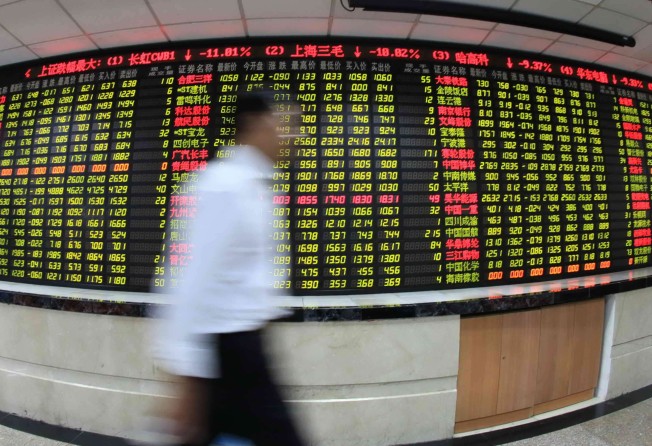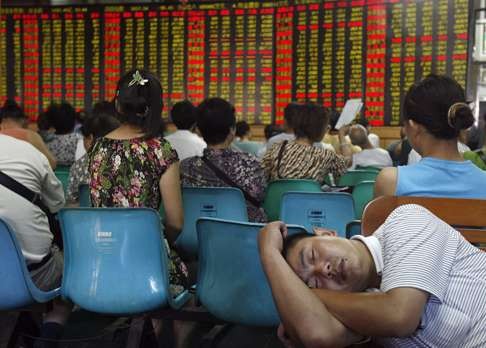China’s mutual fund industry suffers brain drain as managers cope with growing workload
Experienced professionals prefer hedge funds which offer higher pay and more flexibility in asset management

There’s a skills shortage in China’s mutual fund industry, where fund managers are overworked and many lack necessary experience, according to industry experts.
As a result, mainland investors need to really “look under the hood” before handing their money over to mutual fund managers for equity and bond investments.
Overwork appears to be a severe issue facing the 8 trillion yuan (HK$9.44 trillion) mutual fund sector as alarm bells ring over the performance of the more than 3,000 fund products.
According to Securities Times, the mainland’s mutual fund houses have 1,320 asset managers operating 3,049 funds. So each money manager is supposed to take care of 2.3 funds.
What’s worse, fund management firms will continue to suffer a brain drain as experienced professionals jump ship to hedge funds which offer higher pay and more flexibility in asset management.
Chen Kaiyang, a money manager at Shenzhen-based Bosera Asset Management, oversees a total of 32 mutual funds, the busiest fund manager on the mainland’s roller-coast stock market.
Liu Dong, an asset manager with Tianjin-based Tianhong Asset Management, is in the runner-up position with 19 funds under his control.
“The lack of talent will be the major stumbling block to mutual funds’ further growth,” said Wang Feng, chairman of Ye Lang Capital. “Retail investors might eventually learn a hard lesson that the fund managers are not capable of chasing good returns for their money.”
The China Securities Regulatory Commission (CSRC) has been encouraging institutional buying on the volatile stock market where retail investors dominate the trading of stocks.
Individual mainland Chinese investors typically trade shares on rumours while chasing short-term gains in small-cap stocks, regardless of their fundamentals.
Since the mid-1990s, the regulator has been underpinning the growth of institutions by fast-tracking approvals for new fund launches and introducing more qualified foreign institutional investors (QFIIs) to the market.
Since the beginning of this year, the mutual recognition scheme that allows Hong Kong and mainland fund houses to conduct cross-border fund sales on each other’s markets took effect, granting mainland asset managers wider access to raising funds abroad.
“Demand for capable fund managers is increasing, but further losses of experienced managers are inevitable,” said a Shanghai-based fund manager who declined to be identified. “Mutual fund companies are losing the battle for talent against the hedge funds.”
Asset managers in the mutual fund companies are viewed as the champions of the wage earners, with annual incomes that could amount to several million yuan.
Nevertheless, star fund managers including Wang Yawei, a former vice president of China Asset Management, quit the mutual fund sector to create their own hedge funds for career advancement.
Hedge funds, which started on the mainland in 2004, offer higher pay packages with performance-linked bonuses and salaries.

As of April, more than 28,000 funds, including hedge funds for equity investment, private equity funds and venture capital funds, were registered with the Securities Association of China. These funds have raised a combined 5 trillion yuan of capital via private offerings.
Chen Jiwu, president of VStone, a leading hedge fund house on the mainland, said hedge funds would eventually outshine mutual funds in the country’s securities market because they attracted the best asset managers with abundant experience and knowledge about A shares.
The average work experience for China’s mutual fund managers is less than three years, with one third having less than one year’s experience in managing funds.
Mutual fund houses on the mainland, most of which have state-owned parents, acknowledge the CSRC as their central authority. To stabilise the often-arcane market the CSRC would give directions to the mutual funds that affect their operations.
In June last year, the regulator enlisted the help of mutual fund houses to bail out a rattled market amid a boom-to-bust cycle. However, hedge funds are exempt from such direct intervention by the regulator.
“It is a hopeless situation to overwork unseasoned fund managers to develop the mutual fund sector,” said Haitong Securities analyst Zhang Qi.